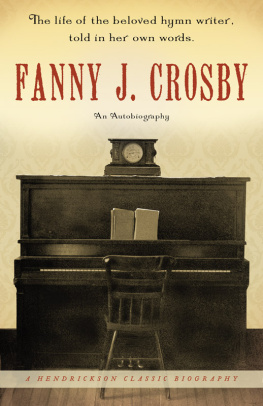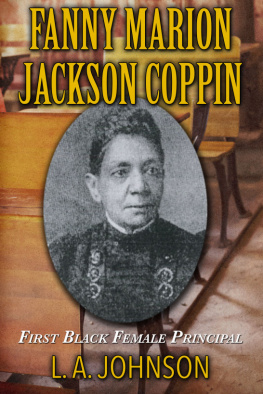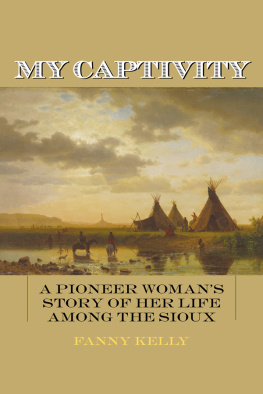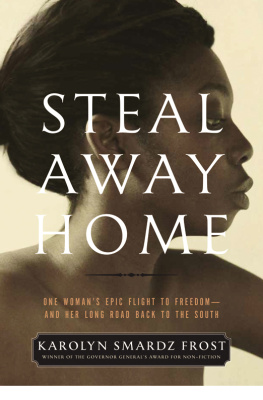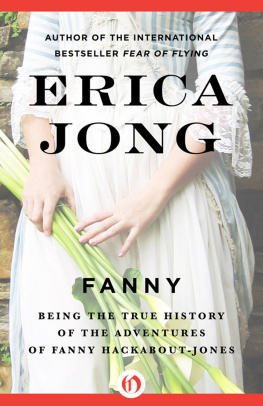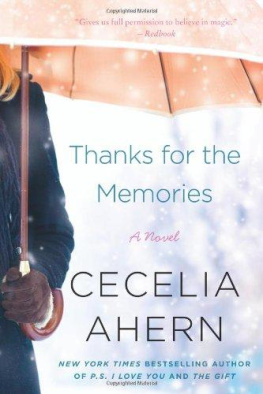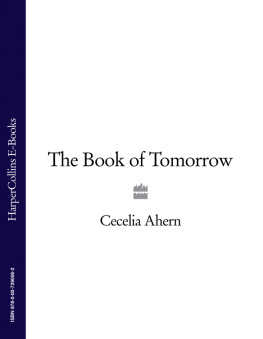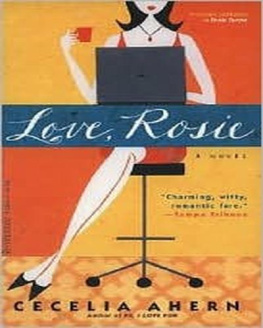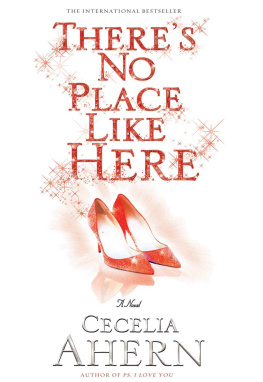Cecelia and Fanny
CECELIA
AND
FANNY

The Remarkable Friendship
between an Escaped Slave
and Her Former Mistress
Brad Asher

Copyright 2011 by The University Press of Kentucky
Scholarly publisher for the Commonwealth, serving Bellarmine University, Berea College, Centre College of Kentucky, Eastern Kentucky University, The Filson Historical Society, Georgetown College, Kentucky Historical Society, Kentucky State University, Morehead State University, Murray State University, Northern Kentucky University, Transylvania University, University of Kentucky, University of Louisville, and Western Kentucky University.
All rights reserved.
Editorial and Sales Offices: The University Press of Kentucky
663 South Limestone Street, Lexington, Kentucky 40508-4008
www.kentuckypress.com
15 14 13 12 11 5 4 3 2 1
Library of Congress Cataloging-in-Publication Data
Asher, Brad, 1963
Cecelia and Fanny : the remarkable friendship between an escaped slave and her former mistress / Brad Asher.
p. cm.
Includes bibliographical references and index.
ISBN 978-0-8131-3414-7 (hardcover : acid-free paper)
ISBN 978-0-8131-3415-4 (ebook)
1. Larrison, Cecelia. 2. Ballard, Fanny Thruston. 3. SlavesKentuckyLouisvilleBiography. 4. SlaveholdersKentuckyLouisvilleBiography. 5. Fugitive slavesCanadaBiography. 6. African American womenKentuckyLouisvilleBiography. 7. Women, WhiteKentuckyLouisvilleBiography. 8. FriendshipCase studies. 9. Louisville (Ky.)Race relationsHistory19th century. 10. Louisville (Ky.)Biography. I. Title.
F459.L853A22 2011
305.8009769dc23
2011018437
This book is printed on acid-free paper meeting the requirements of the American National Standard for Permanence in Paper for Printed Library Materials.

Manufactured in the United States of America.

| Member of the Association of
American University Presses |
For Sue and Mom
Contents
Illustrations
Preface
I first became interested in the life of Cecelia Reynolds, later Cecelia Holmes, still later Cecelia Larrison, when I discovered a collection of letters that Mrs. Frances Thruston Ballard had written to her, an escaped slave living in Canada. Why, I wondered, would an exslave mistress write to a former slave?
The collection, found at the Filson Historical Society in Louisville among the papers of the Ballard family, consists of only a handful of letters, five in number. They are all from Fanny (Frances T. Ballards nickname) to Cecelia. The letters had been collected by Fannys son in the late 1890s. The son, Rogers Clark Ballard Thruston, was one of those obsessive, detail-oriented researchers who populated so many of the nations local historical societies in the waning years of the nineteenth century, without the likes of whom so much of the nations past would have been lost.
It seemed odd that Cecelias side of the correspondence was missing. That would have been the half originally in Fannys possession, and as I came to know and appreciate Rogers Clarks attention to detail, it seemed to me that he would have preserved them if they had existed. I concluded that Fanny most likely had thrown them out, while Cecelia had held on to Fannys letters to her for fifty years. Obviously, Fannys side of the correspondence had been much more valuable to Cecelia than Cecelias had been to Fanny.
Rogers Clark, I think, had wanted to mine the story of his mothers relationship with Cecelia for his own literary purposes. He wrote a preface to the letters that laid out the backstory of Fannys ownership of Cecelia, the slaves escape, and how he eventually came into possession of the letters. Cecelia, who had returned to Louisville after the Civil War, turned to the family of her former mistress for assistance after a series of financial and family disasters in the 1890s. Rogers Clark helped her and, discovering she still had his mothers letters in her possession, bought them from her. In terms of fodder for Rogers Clarks literary efforts, the letters evidently proved disappointing, for he never got beyond the preface he wrote in 1899. He would go on to write books on the history of the American flag and the lives of the signers of the Declaration of Independence, but Fannys letters sat unutilized in the archives of the Filson, of which Rogers Clark served for many years as president.
By themselves, Fannys few letters provide only hints of Cecelias life in freedom. To flesh out the stories of both women required delving into the archival records of their families. Cecelias second husband, William Larrison, had served in the Union army during the Civil War, giving Cecelia a claim on a government pension as a veterans widow. The process of applying for that pension entailed an investigation of the claim by Pension Bureau examiners, an investigation that filled in some of the gaps in the lacunae-laden story of her life. Other gaps were filled by the appearance of Cecelias household in public administrative recordscensus documents, tax rolls, death records, and the like. But many gaps remained, holes in her life that had to be papered over with squishy terms like perhaps and most likely, based on what historians have discovered about other people in similar circumstances at the time.
Fanny, whose life followed the common nineteenth-century trajectory for women as she filled the roles of daughter, wife, and mother, likewise did not leave an extensive paper trail. The Ballard Family Papers at the Filson contain some business correspondence and some memorabilia from her reign as Queen of May, a social honor bestowed upon her when she was just thirteen years old. The men in her life left caches of personal papers, as the rich and prominent are wont to do, but in most cases these yielded precious little insight into Fannys own life.
Are they worth knowing? With so many books on slavery, slaves, and slaveholders, why add another to already overloaded shelves? First, the history of slavery remains heavily weighted toward the rural plantation. But Fanny and Cecelia lived in cities all their lives, and urban life put different twists on the master/slave relationship. Second, the story of slavery and race relations in Kentucky remains underexplored. As a border state, it does not fit comfortably into the history of either South or North. Third, the historical rupture that was the Civil War still serves as the conventional endpoint for stories of slavery or the conventional starting point for stories of freedom. But for Fanny and Cecelia, the war was neither start nor end. Their lives straddled the watershed of the war and were reconfigured by it, as they learned to navigate President Lincolns new birth of freedom.
Chapter 1

Eight Minutes from Freedom
In far western New York State, the short but powerful Niagara River divides the United States from Canada. For fugitive slaves seeking to escape bondage, that international boundary marked the frontier between slavery and freedom. About midway through its course, at Niagara Falls, the river plummets spectacularly over a 170-foot precipice. At the base of the Falls, in the years before the river was bridged, it took a competent ferryman just eight minutes to row the quarter mile across the churning waters from the American side to the Canadian side.
Next page

